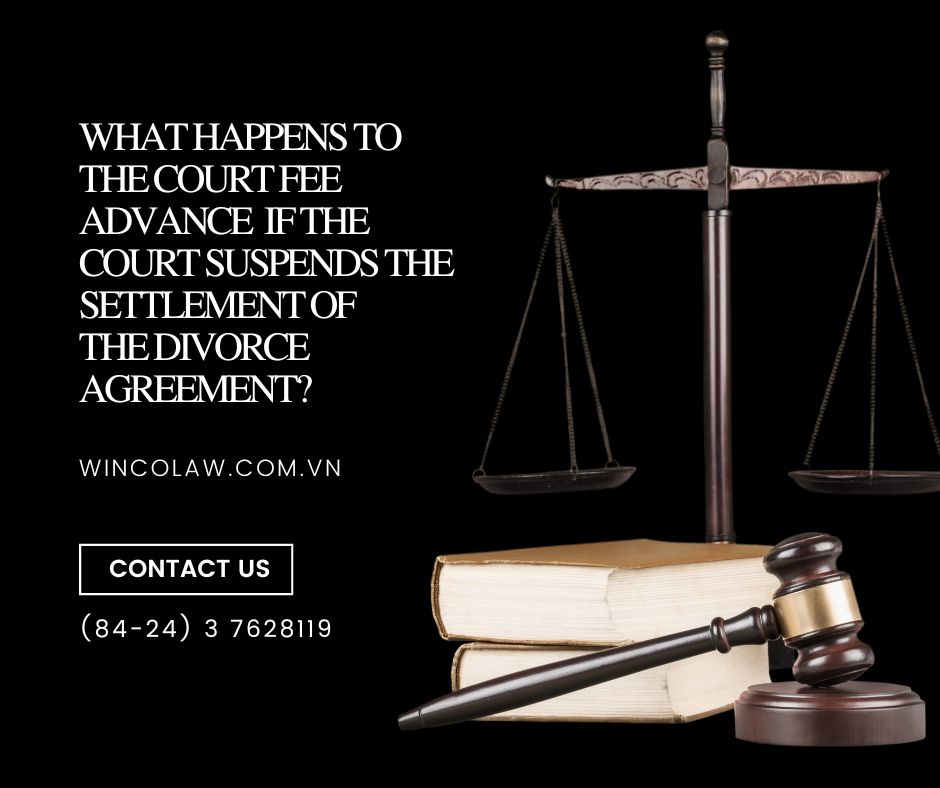
Question:
Dear lawyer, I have a question regarding the following issue and I would like to receive legal advice. Thank you in advance.
If the court decides to suspend the settlement of civil matters regarding the recognition of consent to divorce, agreement on child-rearing, and division of children, as well as removing the records of civil case settlement and handling divorce and division of marital property, how will the paid court fee advance and civil matter settlement fee be settled?
Reply to consultant:
The question you asked me, I would like to answer as follows:
Clause 5, Article 397 of the 2015 Civil Procedure Code provides:
“ Article 397. Reconciliation and recognition of consent to divorce, agreement on child rearing, property division upon divorce
In case the conciliation and reunification is unsuccessful and the involved parties cannot reach an agreement on the division of property, the custody, rearing, care and education of the children, the Court shall suspend the settlement of civil matters regarding the recognition of consent. divorce, child custody agreement, divorce property division and accept the case for settlement. The court does not have to notify about the acceptance of the case, and does not have to reassign the judge to handle the case. The settlement of the case shall be carried out according to the procedures prescribed by this Code.
Clause 5, Article 25 of Resolution No. 326/UBTVQH14 dated December 30, 2016 of the National Assembly Standing Committee stipulates:
“ Article 25. Obligation to pay first-instance civil court cost advances
- In case a civil matter is suspended and the case is accepted for settlement according to the provisions of Clause 5, Article 397 of the Civil Procedure Code, the court must request the involved parties to pay a civil court fee advance for settlement. case according to the general procedure”.
Based on the above provisions, when settling the case, the Court must determine the procedural status of the involved parties, accordingly, the plaintiff must pay a court fee advance as prescribed in Clause 1, Article 146 of the Ministry of Justice. Civil Procedure Law 2015 :
“ Article 146. Obligation to pay court cost and fee advances
- Plaintiffs and defendants who make counter-claims against the plaintiffs and persons with related interests and obligations who make independent claims in civil cases must pay first-instance court cost advances and appellants according to the provisions of law. appellate procedures must pay an appellate court fee advance, except for cases where the court fee advance is exempted or not required.”
In case the involved parties must pay the court fee advance, the paid civil matter settlement fee advance will be deducted; if it is not enough, the deficit must be paid; in case the involved parties do not have to pay the court cost advance, the paid civil matter settlement fee advance will be settled when the court decides the court cost.






